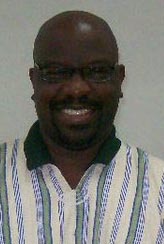Closer collaboration between the local private sector and the University of Guyana’s (UG) recently established School of Entrepreneurship and Business Innovation (SEBI) is likely to see the university play a key role in honing the skills necessary to help meet the requirements of the local business community, visiting Professor at SEBI, Dr Leyland Lucas, has told the Stabroek Business.
Professor Lucas’ pronouncement follows what he told this newspaper on Monday was a significant meeting just over a week ago between SEBI and a delegation from the Georgetown Chamber of Commerce and Industry (GCCI) arising out of which Professor Lucas said were, “clear indications that the local Business Support Organizations (BSOs) “are definitely interested in working with SEBI” in pursuit of enhancing the skills base in the private sector.
And according to Lucas, arising out of the engagement between SEBI and the key private sector body was the decision that students undergoing training at SEBI will be assigned work attachments in the private sector under conditions that will be governed by mutually agreed guidelines. The attachment initiative which is expected to commence over the next eight weeks will be mutually beneficial to both the students and the businesses insofar as it will afford students both the opportunity for valuable work experience as well as cause those businesses to which they are attached to benefit from their particular skills.
“What we most want to ensure is that the students who are attached to the businesses are assigned to those areas where their particular skills will be directly beneficial to the entity to which they are assigned. We are talking about going beyond ‘grunt work’ here,” Lucas was quoted as saying.
According to Professor Lucas, SEBI, in the period ahead, will be paying greater attention to working with the business community in creating its Professors of Practice programme which will see accomplished representatives of the business community providing guest lectures on specific topics that are part of the curriculum. “The reality is that there are a number of experienced and qualified people in the private sector and one imagines that they can do much to contribute to the efforts being made by SEBI,” Professor Lucas stated.
He added that SEBI has created an Advisory Board which met recently and which will be playing a key role in helping to shape the direction in which the school goes.
Lucas said he believed that both SEBI and the business community representatives with whom it had met were of the view that service standards in the private sector need to be significantly ratcheted up. “Some of the ways of doing business that we see here are no longer appropriate. We must, for example, raise our levels as far as customer services skills are concerned and that is an area in which we intend to work with the private sector,” the professor said, adding that customer service was one of those areas in which SEBI and the business community were expecting to work together.
Meanwhile, Professor Lucas disclosed that as part of its strategy to further popularise the services which it offers, SEBI will be seeking to ‘sell’ its services to the wider business community through an outreach exercise. “The idea is to seek to determine the needs of those businesses that we encounter and to work with them to determine how their requirements can be met.” Lucas declared.
In July 2017 UG had launched SEBI with a pledge that the new institution would be seeking to contribute to both the public and private sectors by developing entrepreneurial skills and innovative leadership in the building of a vibrant business sector. In this regard SEBI had targeted the upgrading of entrepreneurial skills of small business owners with little or no formal business training as one of its objectives.
The school’s programmes will facilitate significant cross-discipline collaboration, allowing students in other areas to participate in studies and projects in agro-processing, healthcare management, creative arts management, and environmental management, just to name a few.
At the launch of SEBI, UG Vice Chancellor Professor Ivelaw Griffith had said that what the university was seeking to do through the launch of SEBI was to create opportunity for “not only entrepreneurship in thinking, not only entrepreneurship in dreaming but entrepreneurship in doing.”
Earlier this week in his interview with the Stabroek Business, Professor Lucas said that what UG was seeking, going forward, was to have SEBI become the ‘go to’ place for business training. Lucas said that the new institution was mindful of the potential pitfalls of overly rapid expansion manifested in the danger of “too large classes.”
Meanwhile, in adverting to what he said was the focus of SEBI on being relevant to the developments that are unfolding in the wider society Lucas disclosed that SEBI was seeking to develop and roll out short courses for the oil and gas sector as well as for the agricultural and agro-processing sectors, among others.





